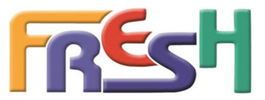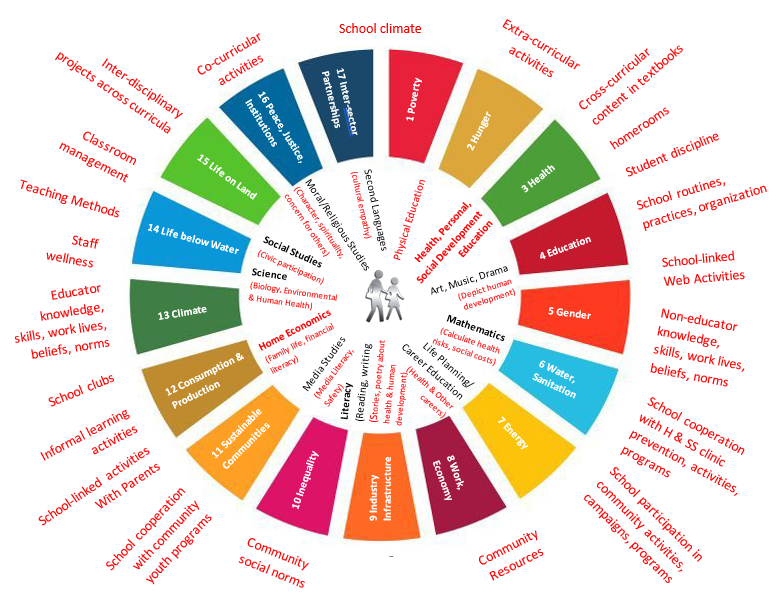Essential Knowledge, Skills, Beliefs, Attitudes and Values Promoted by the FRESH Framework
Instruction and curriculum, as well as the other components of a comprehensive approach such as extra-curricular and co-curricular activities, community activities and online learning linked with school programs, school routines such as washing hands, active recess periods, policies, conditions, services and other elements will help or ensure that students acquire essential knowledge, skills, beliefs, attitudes and values about their education, health and development. These instructional or organized extended education programs can also help students to develop behavioural intentions and offer school and co-curricular opportunities to practice these skills and use these beliefs in various routines.
The FRESH Working Group on Health Literacy, Life Skills and Social Inclusion has involved over 70 experts, practitioners and officials in defining what can be delivered and learned in Health, Personal & Social Development (HPSD) education programs. The diagram below depicts the breadth and scope of such programs and positions such learnign within the UN 2030 Sustainable Development Goals.
One of the important initial findings of this FRESH Working Group is that many HPSD education programs are actually collections of units focused on specific health or social problems. Indeed, the research and monitoring of core HPSD curricula or extended educational activities has not identified, nor monitored, the generic, essential skills, knowledge and attitudes that should be learned by all students. Further, the apparent contradiction between the prescriptive, medical approach to promoting specific healthy behaviours may actually be in contradiction to an empowering, student actuion approach wherein student and teacher agency are emphasized. Research and reporting have not described the number of instructional hours needed to achieve those learning objectives. It has not tracked the status of such core HPSD curricula nor of the qualifications, training and skills, beliefs and readiness of HPSD teachers.
The report of the FRESH Working Group will define pathways to answer these questions.An International Research Network of the World Education Research Association and a Consortium of Education & Other Faculties will then follow those pathways in the future.
Instruction and curriculum, as well as the other components of a comprehensive approach such as extra-curricular and co-curricular activities, community activities and online learning linked with school programs, school routines such as washing hands, active recess periods, policies, conditions, services and other elements will help or ensure that students acquire essential knowledge, skills, beliefs, attitudes and values about their education, health and development. These instructional or organized extended education programs can also help students to develop behavioural intentions and offer school and co-curricular opportunities to practice these skills and use these beliefs in various routines.
The FRESH Working Group on Health Literacy, Life Skills and Social Inclusion has involved over 70 experts, practitioners and officials in defining what can be delivered and learned in Health, Personal & Social Development (HPSD) education programs. The diagram below depicts the breadth and scope of such programs and positions such learnign within the UN 2030 Sustainable Development Goals.
One of the important initial findings of this FRESH Working Group is that many HPSD education programs are actually collections of units focused on specific health or social problems. Indeed, the research and monitoring of core HPSD curricula or extended educational activities has not identified, nor monitored, the generic, essential skills, knowledge and attitudes that should be learned by all students. Further, the apparent contradiction between the prescriptive, medical approach to promoting specific healthy behaviours may actually be in contradiction to an empowering, student actuion approach wherein student and teacher agency are emphasized. Research and reporting have not described the number of instructional hours needed to achieve those learning objectives. It has not tracked the status of such core HPSD curricula nor of the qualifications, training and skills, beliefs and readiness of HPSD teachers.
The report of the FRESH Working Group will define pathways to answer these questions.An International Research Network of the World Education Research Association and a Consortium of Education & Other Faculties will then follow those pathways in the future.

